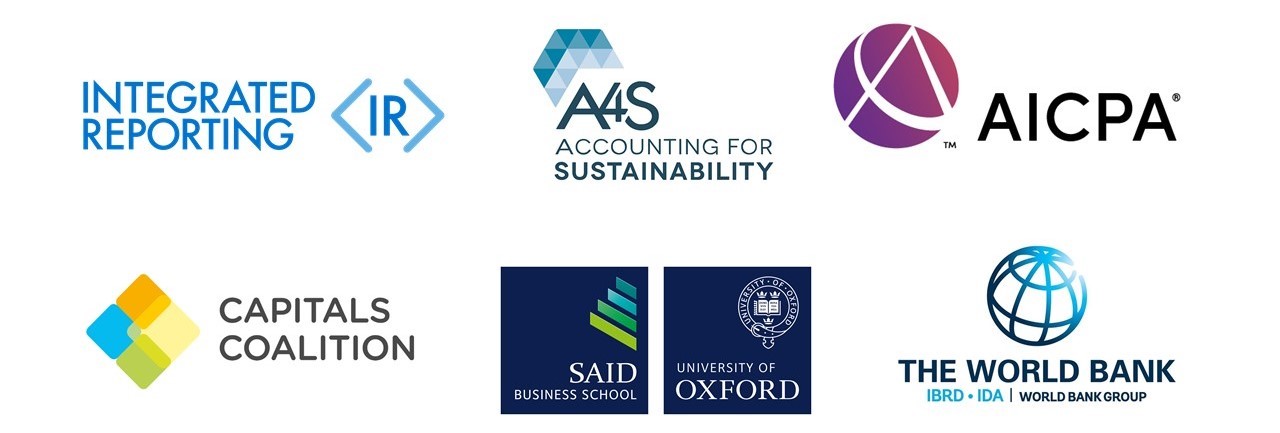Integrated Thinking & Strategy Group
This special interest group, focusing on ‘integrated thinking and strategy‘, offers world-renowned and innovative organisations the opportunity to share thinking about developing strategy across multiple capitals, learn from world leaders and co-create a common view of integrated thinking that is globally relevant to help build resilient, future-fit businesses.
Founded in 2018, the Group is currently chaired by ABN AMRO’s Tjeerd Krumpelman, with Professor Cristiano Busco of Luiss Business School serving as co-chair.
Case Studies
Participants of the group have shared their insights and experiences through a series of case studies, exploring how they use integrated thinking to shape and deploy their strategy.
Integrated Thinking Principles
A strategic planning tool for boards and management, Integrated Thinking Principles help embed sustainable business practices into an organisation and provide a foundation for long-term value creation. The principles—Purpose, Strategy, Risks and Opportunities, Culture, Governance and Performance—are designed to be embedded into an organisation’s business model and applied across important activities overseen by its board and its senior management team.
Transition to integrated thinking: a guide to getting started
The Transition to integrated thinking: a guide to getting started aims to assist senior leadership and those charged with governance in an organisation on their journeys towards embedding integrated thinking.
Integrated Thinking: A virtuous loop report
The Integrated thinking: A virtuous loop report explores integrated thinking as a constantly evolving loop. It examines case studies from some of the world’s most innovative organisations, including Solvay and Novo Nordisk, and how they have mapped out and implemented their integrated thinking journeys.
Why did we create this group?
Traditional business management, based on financial analysis, has not kept pace with the seismic shifts taking place over the last thirty years. The value of intangible assets has now grown to over 90% of total market value for S&P 500 companies. Today, the best performers are basing their business decisions on interconnected and forward-looking information across multiple capitals, with a view to sustainable value creation.
In 2016, Larry Fink, chairman of BlackRock, wrote to CEOs of leading companies asking them to communicate to shareholders their annual strategic frameworks for long-term value creation. The 2018 edition of Larry Fink’s letter also challenged CEOs to consider their social purpose, and in 2021 it asked companies to disclose a plan for how their business model will be compatible with a net zero economy, including how this plan is incorporated into their long-term strategy and reviewed by their board of directors. Many others, from Paul Polman to Jamie Dimon, have joined the chorus around considering the longer term, as well as the short and medium term.
A number of questions arise:
- What are the strategic imperatives behind longer-term value creation across the range of capitals that businesses rely on (from financial and manufactured capital to human, intellectual, social and relationship and natural capital)?
- What multi-capital decision tools can businesses use that are credible in the board room? And credible with your investors?
- How are companies dealing strategically with these and other challenges of corporate governance and performance management?
A diverse group of organisations came together to establish the special interest group in 2018:
- Association of International Certified Professional Accountants
- Capitals Coalition
- Said Business School, University of Oxford
- The Prince’s Accounting for Sustainability
- The World Bank.

How to get involved
This network features leading organisations, from any global sector or region, that want to develop relationships with other businesses innovating in the evolution of integrated thinking and strategy. Some participants have already adopted integrated reporting and are seeking to take further their integrated thinking, as they increasingly understand its essential role in long-term value creation. Others recognise the need to manage the multiple capitals they deploy in their businesses, even if they have not yet adopted integrated reporting. Individual participants in the group are likely to come from a number of different parts of the organisation:
- Finance management and performance management
- Strategy development
- Sustainability
- Human resources
We also hold regular webinars, as part of the IFRS Sustainability Alliance program.
